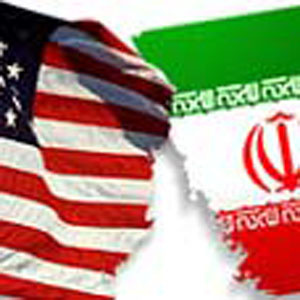Bush’s Regional Tour: a Success or a Failure
President Bush’s trip to the Middle East region has brought, once more, the issue of Iran phobia to the forefront of regional discourse. Even before Bush left Washington for the region, he said that Iran would be one of the top issues during his visit.

President Bush’s trip to the Middle East region has brought, once more, the issue of Iran phobia to the forefront of regional discourse. Even before Bush left Washington for the region, he said that Iran would be one of the top issues during his visit.
In his first leg of the visit, Bush held different rounds of discussions with Israeli leaders and spoke before the Israeli parliament. In all these talks, he highlighted the so-called Iranian nuclear ambitions.
The Israeli Army Radio said that during Olmert- Bush talks, the possibility of strikes against Iran by the end of the year was discussed. Furthermore, referring to the U.S. and Israel similar position on Iran, Olmert’s spokesman said that "We are on the same page. We both see the threat ... And we both understand that tangible action is required to prevent the Iranians from moving forward on a nuclear weapon."
It has been the Israeli position all along that more pressure, including a military one, must be exerted against Iran until it stops its peaceful nuclear activities. Interestingly enough, while Israel is in possession of more than 200 nuclear warheads, it is coordinating and spearheading all efforts at regional and international levels to prevent Iran from exercising its legitimate rights to peaceful nuclear activities in accordance with NPT.
The Israeli and American bellicose rhetoric has been responded by Iranian officials. Reacting to this recent militaristic position, the Iranian Defense Minister said in an interview that Israel is in a weak and vulnerable position to attack Iran.
It is interesting to note that during his visit, Bush made unprecedented remarks about Israel calling it closest ally and best friend in the world.
His remark was so unusual that even a former Israeli official called it "one of the strongest expressions of support for Israel ever." The U.S. President has chosen to ignore the fact that besides the Iraqi debacle, the main reason for U.S. unpopularity among Muslim countries is its pro-Israeli policy in the Middle East and its continued disregard for Israeli atrocities against Palestinians.
Although Bush was expected to raise the necessity of resumption of talks between Israelis and Palestinians during his stay in Israel, he put aside a main foreign policy objective of his last year in office, namely, to push forward the Israeli-Palestinian peace talks. He did so because of the fact that he received a cold shoulder from the Israelis on the subject, therefore, not seeing a possibility for progress by the end of the year.
On his second leg of the visit, Bush appealed to Saudi leadership to help with the rising oil prices. He also sought the Saudi support for the U.S. policy to contain what he calls "Iran’s growing influence." It seems that Bush did not receive full promise from Saudis on both issues. While Saudi Arabia accepted to increase the oil production with 300,000 barrels per day, much less than what the Americans were asking for, they did not come public on the issue of dealing with Iran. The Saudi officials know that it is not in their interest to antagonize Iran. They are cognizant of the fact that Iran and Saudi Arabia, as the most powerful countries in the Persian Gulf, should cooperate with each other on all issues for the betterment of the people in the region.
In the last part of his journey to the Middle East, Bush spoke before the World Economic Forum in Sharm El-Sheik, Egypt and gave a lecture to Arab countries on democracy and the need for people in the region to enjoy more freedom. Again, President Bush decided not to be committal to the idea of reaching an agreement between Israelis and Palestinians by the end of 2008. He again assailed Iran as a country sponsoring terrorism which must be isolated.
In a nutshell, Bush’s trip was a setback for the establishment of peace and justice in the region. The Israelis benefited most from this trip at the expense of the others including the Americans.
While not budging an inch from its position on the Palestinian issue, Israel was promoting Iran phobia and pushing the U.S. for a confrontation with Iran. With its unbridled support for Israel, the United States has added to its unpopularity in the Middle East.
The U.S. should realize that military confrontation with Iran will be costly and bear no positive result, whatsoever, for Americans as Iran has declared time and again that any aggression against it will not be unanswered. Militaristic policies will only make the United States more ostracized among the Muslims worldwide. The era of belligerent talks and unwise decisions is over. Instead, all sides should strive for prudence and rationality to prevail.

